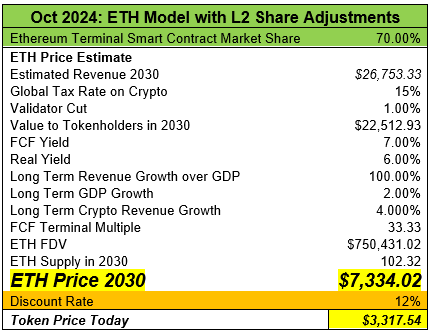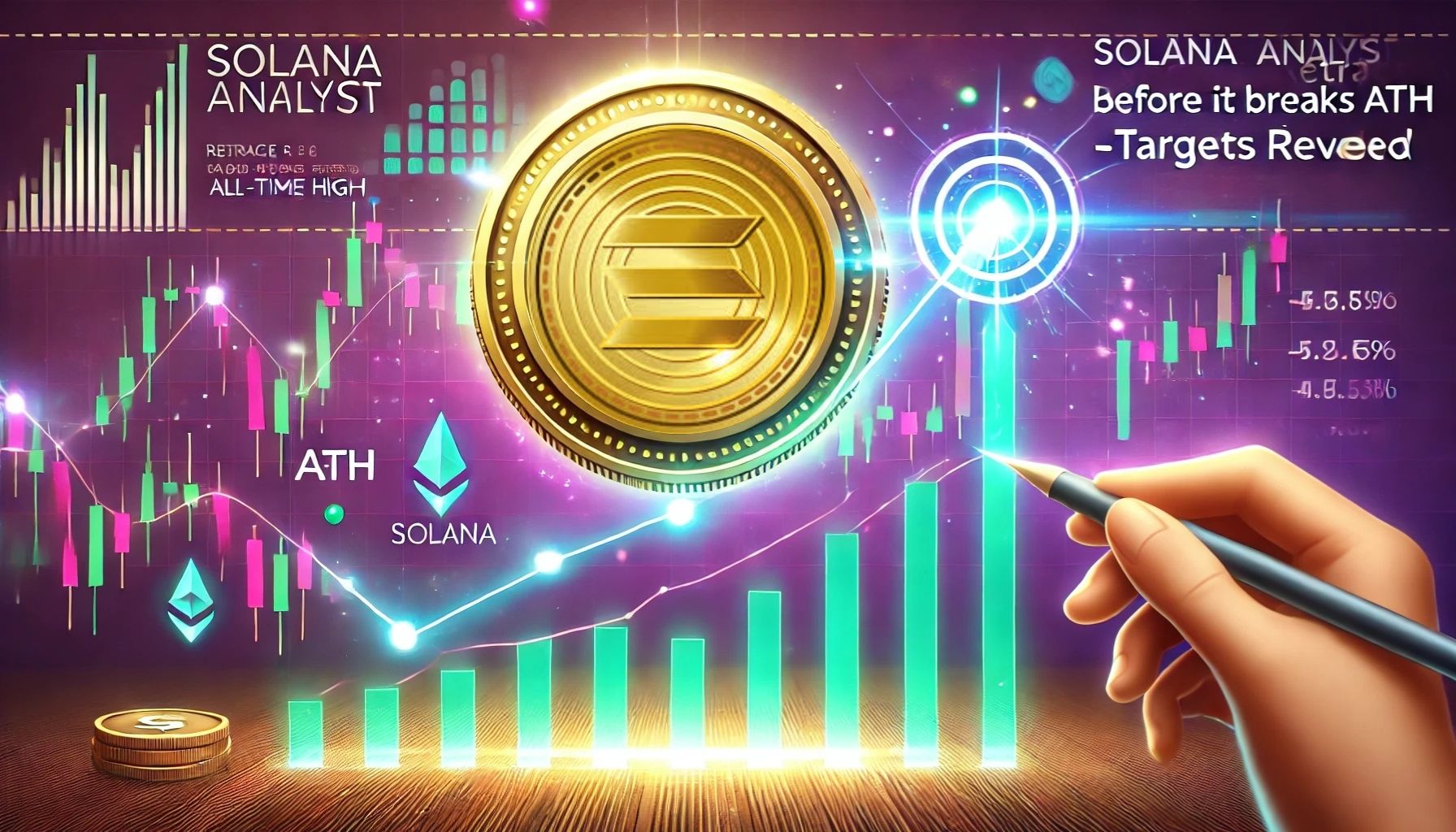VanEck’s head of research, Matthew Sigel, predicted that ETH might continue struggling if Ethereum layer-2 networks continue to take value from it. Sigel expressed this view on X, noting that unbalanced conditions between the network and its L2s could prevent ETH from reaching $22,000 by 2030, as earlier predicted.
According to Sigel, VanEck predicted that ETH will be worth $22,000 by 2030 based on the expectation that Ethereum and its layer 2 networks will split total value locked (TVL) and MEV at a 50:50 ratio. While this has held true, VanEck has noticed a change in its model that expects Ethereum to split transaction revenue with L2s at a 90:10 ratio. Instead, the opposite has happened.
He said:
“Our original model assumed 90:10 split on transaction revenue between Ethereum and L2s (this is the extracted value that Ethereum would take from L2s from blob fees, proving fees and other fees like call data fees). The actuals are currently 10:90 in favor of L2s (past 4 months of data).”
Based on the current revenue split, Sigel believes the L2s are taking value from the base ETH network. If conditions stay this way, the price target might fall by two-thirds, dropping to just over $7,300 by 2030.
Sigel’s comments join a series of opinions on Ethereum’s performance in relation to L2s since the Dencun upgrade in April, which created blobs and drastically reduced fees on the L2 networks.

However, it has also reduced Ethereum fees, turning ETH supply inflationary due to lower burns. Some stakeholders now believe that layer 2s have a parasitic relationship with Ethereum. On the other hand, others believe this is what scalability looks like, and Ethereum was designed to be this way.
Will the Ethereum roadmap change because of price?
Sigel clarified that his predictions for Ethereum’s price are only based on whether the current conditions remain the same for a long time and ETH does not regain some of the revenue margins from the L2s. He also added that the current state of ETH’s underperformance could cause Ethereum Core developers to modify the development roadmap to address this issue.
He said:
“We expect the underperforming token price to catalyze the community to tweak ETH’s roadmap in an attempt to reverse some of the declining profitability.”
Sigel points to a recent statement by Ethereum co-founder Vitalik Buterin as a sign of possible action.
In the statement, Vitalik called for a shared revenue model between L2s and Ethereum. According to him, variance is normal in the market, but the ideal situation would be where L1 and L2 accrue fees in a balanced way and everyone is satisfied. Vitalik added that upcoming updates with the Pectra upgrade, such as EIP-7762, are an excellent place to start.
He said:
“We need to maintain an ecosystem where ethereum people feel they are on the same team, and this has a tech interoperability part, a values/culture part, and an economics part too.”
However, Pseudonymous user Evanss6 does not believe this statement implies that Ethereum is modifying its roadmap because of ETH’s underperformance, noting that all the things Vitalik discussed were already in the roadmap. Others also believe that the current debate over the L2 dominance of the Ethereum base layer is too early, as the blobs market will saturate.
ETH is up 9% in the past seven days
Despite several debates about ETH’s value accrual versus its L2 networks, ETH has seen its price soar along with the rest of the market over the last seven days. The token is up 9% in seven days and trades at $2,650.
However, its performance compared with other major cap tokens this year still leaves much to be desired for holders. It is only up by 12% year-to-date compared to Bitcoin, which gained 55.84%, BNB 91%, and SOL 42%.
Still, its poor performance is not just due to L2s extracting value from the base layer. It is also because the spot ETH exchange-traded funds (ETFs) have not caught on as many expected. The products currently have a net outflow of $469.2 million, thanks mostly to Grayscale ETHE outflows.











